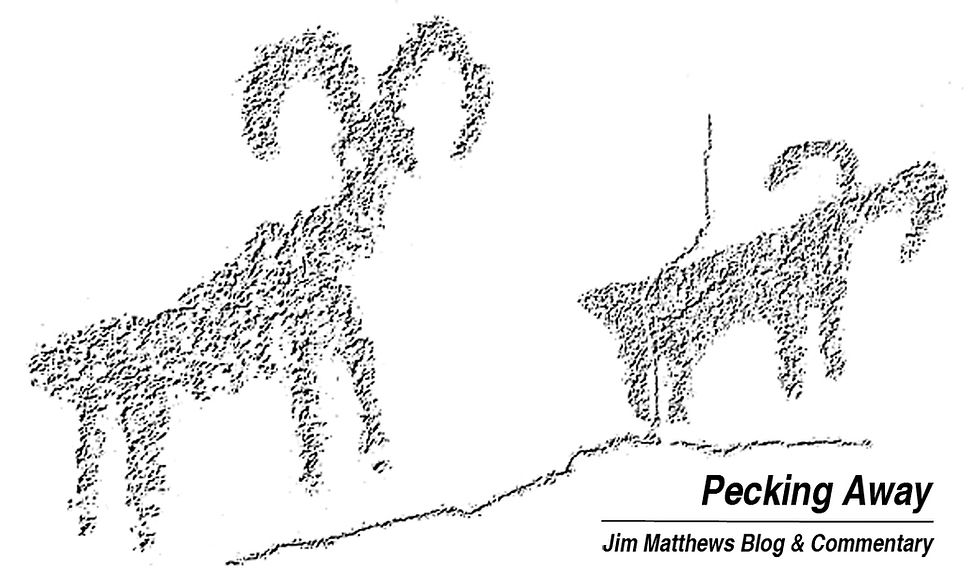Mojave Preserve staff says guzzler removal proposal is not written in stone

By JIM MATTHEWS
www.OutdoorNewsService.com
BARSTOW -- Todd Suess, Mojave National Preserve superintendent and other Preserve staff, insisted that removal of man-made water for wildlife on Preserve's desert land would not happen until studies called for in the plan were complete and proved that they were not serving their intended function.
The seeming contradiction of the recently-released water management plan and environmental assessment came at a public forum Friday evening at the Preserve headquarters here. The meeting was attended by about 30 people from hunter-conservation groups that have maintained the man-made water sources in this part of the desert for over 50 years.
"We're not proposing removal [of any water sources] without knowing what's going on," said Suess (shown in photo below during the meeting). In fact, Suess insisted that if the studies, required in plan, showed that all of the water sources were important to wildlife should be maintained, including all 130 small game guzzlers and the handful of big game drinkers, he would "be OK with that."

Suess said there were still concerns about the historic designation of small game guzzlers, but that maintenance "probably" could be resumed on certain guzzlers, and that filling all the existing guzzlers with road access would not violate any park policies or laws, while the historic designations are still sorted out and while the management plan is being finalized.
"The plan plainly says that the past 50 years of work developing and maintaining these water sources for wildlife is being abandoned. There is no option to keep them," said Cliff McDonald, the President of Water for Wildlife, a group of hunter-volunteers who have restored and maintained small guzzlers throughout the Mojave Desert and Eastern Sierra Nevada for the past decade. "The only four options in the plan call for the removal or abandonment of most of the guzzlers."
There is indeed not an option in plan that calls for the continued maintenance and restoration of all of the wildlife water sources, even if that is what the studies being done now and started within the next few years, show that would be the best course of action for the Preserve's wildlife. But it could show up in a future version of this “preliminary” document.
Preliminary? The document says “Final” right on the cover.
If this was indeed a preliminary draft, none of the Preserve staff could give an adequate answer why the plan's options were even included in this "preliminary" document before the science could justify any of the options. They had bureaucratic explanations that, frankly, didn’t make sense.
Wasn’t it getting the cart before the horse? Why not do the science first, and then come up with a plan and a variety of options based on science instead of releasing a plan with a preferred option even before we know if that is really the “preferred” or best alternative. No adequate answers were giving by Preserve staff to these questions.
Debra Hughson, the Preserve's lead scientist, said that if the public was interested in having another option added to the Plan that would mandate the Preserve continue to allow maintenance and upkeep of all water sources, they should submit that in their comments.
She said that was one of the options the Preserve staff considered but dismissed, leaving only the four options that would lead to removal and abandonment of most of the small game guzzlers.
However, the plan dismisses the importance of small game guzzlers without further analysis (abandonment and/or removal to varying degrees is called for in all four options). Yet, the staff must have recognized the guzzlers were likely to be important to wildlife because there is a study planned and being implemented that would document their importance or lack of importance to wildlife.
What the water management plan did dismiss as not being warranted for study was the impact the reduction of wildlife water sources would have on small game and upland bird hunting on the Preserve, dismissing the impacts as insignificant. Yet, how would a reduction of bird and small game populations -- if that is proven to be the case with guzzler removal -- not be a detriment to hunting?
There were no adequate answers or explanations given as to why the plan basically dismissed small game guzzlers and their impacts on hunting.
Of those who attended the meeting, there was not one person who thought the water management plan was sound as drafted or that any reductions in the water sources was a good idea. All the NPS staff on hand encouraged written comments and wrote down comments from the group.
The deadline for comment on the water management plan has been extended until May 19. They may be submitted online at http://parkplanning.nps.gov/waterplan_ea or mailed to Superintendent, Mojave National Preserve, Attention: Water Plan & EA Comments, 2701 Barstow Road, Barstow, CA 92311. The public can download complete copies of the plan from this page on the NPS website: https://parkplanning.nps.gov/.
“I think it will be proven essential that we keep and maintain all of the water sources on the Preserve,” said McDonald. “That should have been an option in this plan.”
END
Jim Matthews is a syndicated Southern California-based outdoor reporter and columnist. He can be reached via e-mail at odwriter@verizon.net or by phone at 909-887-3444.



















